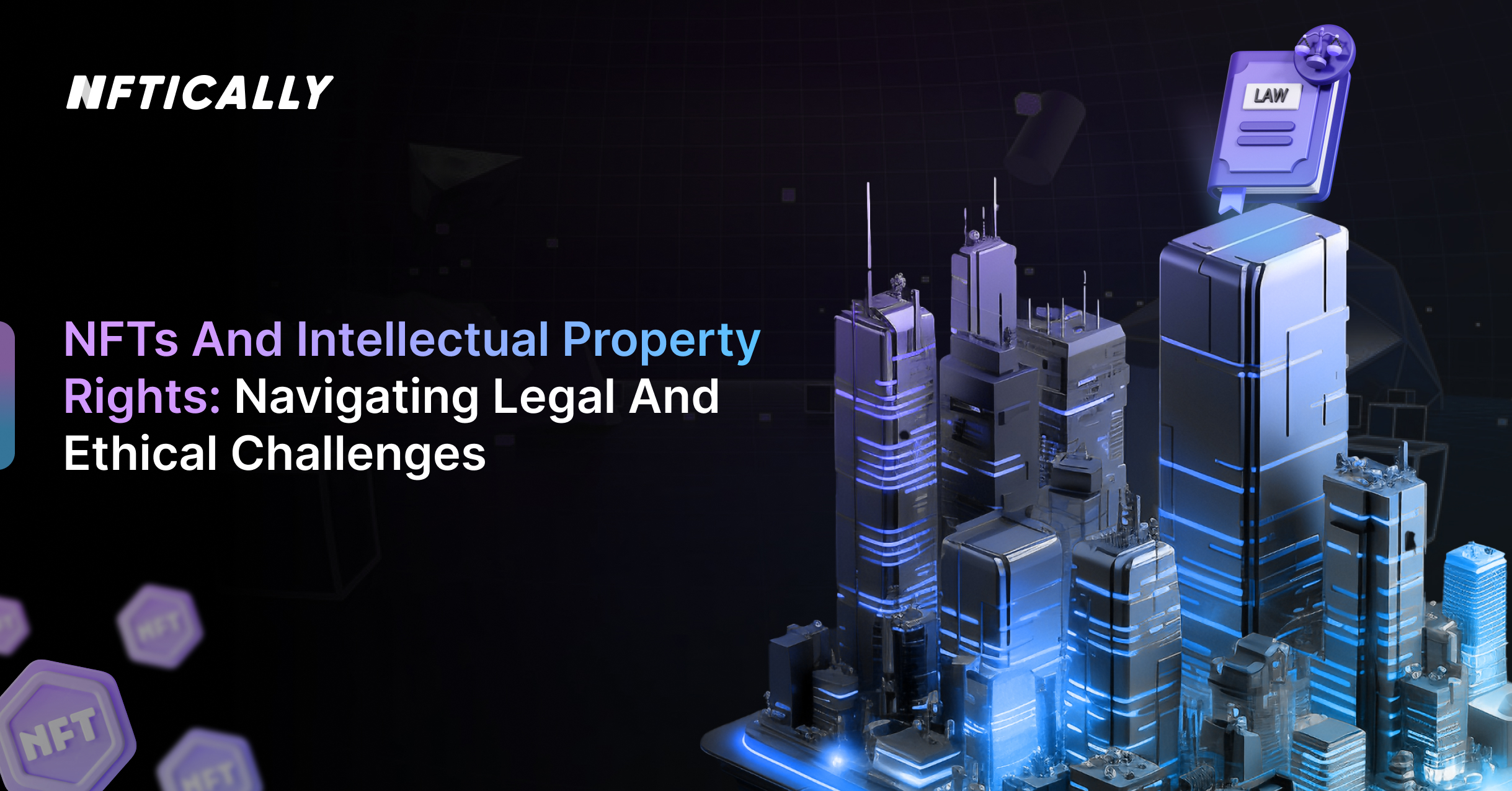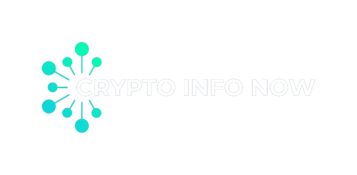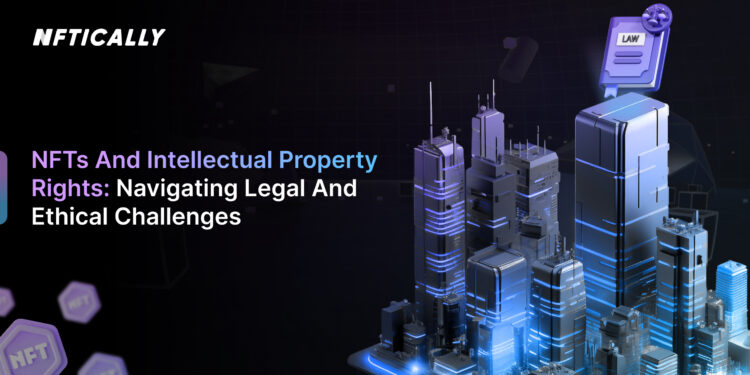[ad_1]

Introduction
The rise of Non-Fungible Tokens (NFTs) has ushered in a groundbreaking period within the digital world, providing a novel technique of proudly owning and buying and selling distinctive digital belongings. Nevertheless, together with this revolutionary idea come a bunch of complicated authorized and moral challenges, significantly regarding mental property rights. On this complete weblog put up, we’ll totally discover the multifaceted panorama of NFTs, delving into the intricate points associated to copyright, possession, and mental property.
Understanding NFTs
Earlier than we embark on a journey by way of the authorized intricacies, let’s set up a strong understanding of what NFTs actually entail. NFTs are distinct digital tokens that signify possession of particular digital or bodily belongings. In contrast to well-known cryptocurrencies similar to Bitcoin or Ethereum, NFTs are non-fungible, which means every one is fully distinctive and can’t be straight swapped on a one-to-one foundation. These tokens are generally employed to signify numerous types of digital belongings, together with digital artwork, collectibles, music, virtual real estate, and extra.
The Complicated Net of Copyright Challenges
One of many foremost issues that come up within the realm of NFTs and mental property is the difficulty of copyright infringement. Curiously, many artists and creators are themselves concerned in minting NFTs of their very own work, bestowing possession and authenticity upon the consumers. But, this peculiar scenario begs the query: are these artists infringing on their very own copyrights by promoting digital renditions of their creations?
To navigate this intricate panorama, artists and creators should ponder how they want to deal with the licensing of their work when creating NFTs. Some go for unique licenses, thereby guaranteeing that they keep their rights and inventive management. Others would possibly determine to launch their work below a Artistic Commons license, which delineates the phrases of NFT utilization and determines the extent to which the artist retains sure rights over the work.
Possession and Provenance – A Delicate Balancing Act
One of many alluring features of NFTs is their functionality to authenticate the origin and possession historical past of a digital asset – an idea generally known as “provenance.” But, this newfound transparency raises questions relating to the possession of the underlying mental property. Merely possessing an NFT representing a chunk of digital artwork doesn’t essentially grant the holder the unbridled proper to put it to use as they see match.
The underlying blockchain expertise supporting NFTs facilitates the creation of a clear possession historical past. Whereas this has been immensely helpful for artists and creators in curbing unauthorized copy and distribution of their work, it doesn’t inherently bestow the suitable to commercialize the work or use it in methods unintended by the unique creator.
Good Contracts and Licensing: A Ray of Hope
To handle these multifaceted points, quite a lot of artists and creators have begun embedding licenses straight into NFTs utilizing sensible contracts. These self-executing contracts can spell out the phrases of use, specify how the NFT could be transferred, and even allocate royalties to the creator on secondary gross sales. As an example, an artist would possibly stipulate that the NFT proprietor can exhibit the art work in a digital gallery however is prohibited from reproducing it for industrial functions.
Nonetheless, challenges persist. The enforcement of such licenses could be a complicated course of, significantly if the NFT proprietor breaches the phrases. Moreover, interoperability points between numerous NFT marketplaces and platforms make it a formidable job to constantly observe and implement licensing agreements.
Copyright Infringement and Plagiarism: The Darkish Facet of Anonymity
The relative anonymity and openness of the NFT area have given rise to issues about copyright infringement and plagiarism. Situations have emerged the place artists’ works had been tokenized with out their permission, sparking disputes over the rightful possession of the NFT.
These disputes underscore the urgent want for NFT marketplaces and platforms to shoulder the accountability of verifying the authenticity of NFTs and guaranteeing that the minting course of adheres to copyright legal guidelines. Many marketplaces have launched verification processes and instruments to mitigate this concern, but it surely stays a considerable problem.
The Moral Quandary
Past the authorized conundrums, a profound moral dilemma looms over the NFT area. Some artists and environmental advocates are deeply involved concerning the appreciable power consumption related to blockchain transactions, which may doubtlessly contribute to elevated carbon emissions. This environmental affect of NFTs raises a poignant query: are artists and consumers prepared to compromise their environmental values in pursuit of proudly owning and buying and selling digital belongings?
In Conclusion
NFTs have heralded a transformative manner of shopping for, promoting, and proudly owning digital belongings, however they’ve additionally ushered in a maze of authorized and moral challenges, significantly regarding mental property rights. Copyright, possession, licensing, and plagiarism are only a few of the intricate points that artists, creators, consumers, and NFT platforms should navigate.
Trying to find a top-tier NFT market that champions mental property rights? Your quest ends right here. NFTICALLY, a worldwide B2B SaaS resolution, affords you the power to launch your very personal NFT market or NFT retailer with a powerful dedication to defending mental property rights. Discover NFTICALLY to dive into the world of NFTs whereas upholding and safeguarding your mental property rights.
[ad_2]
Source link



